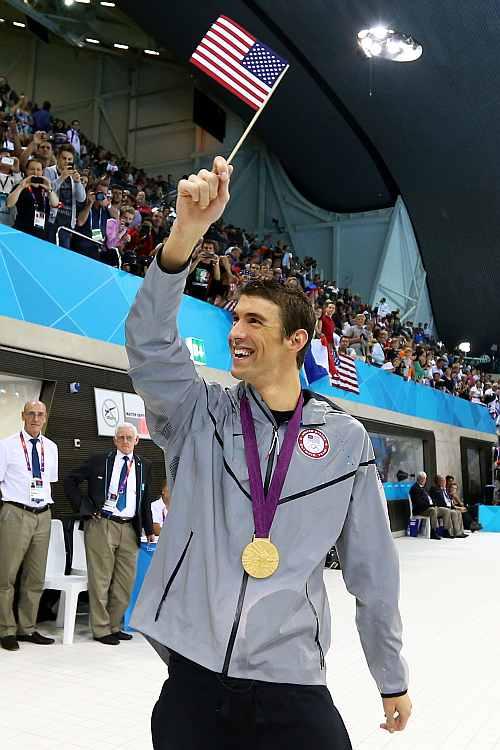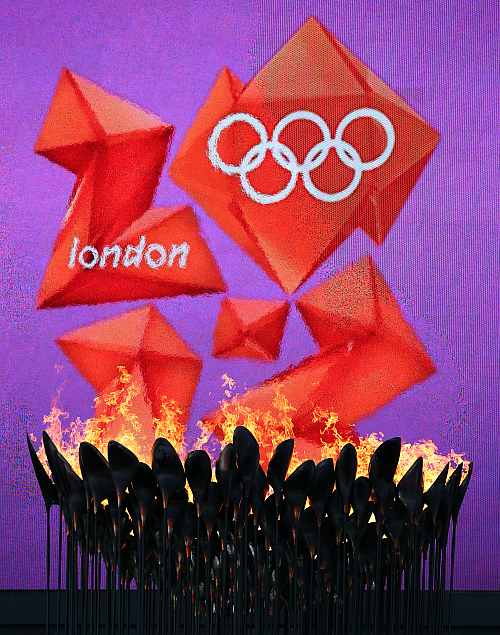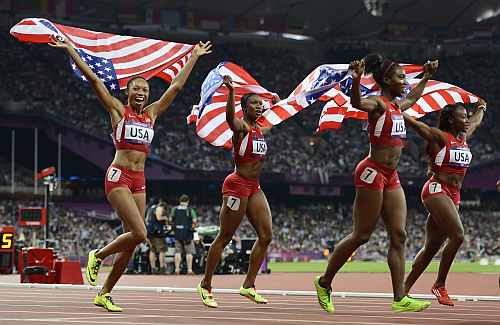 | « Back to article | Print this article |
Girl power carries US back to top of medal table
The United States clawed back to the top of the Olympic medal table at the London Games, waving goodbye to Michael Phelps its greatest ever medal producer, and saying hello to a brigade of young newcomers who will carry the torch onto Rio.
To fully appreciate Phelps contributions to the U.S. cause, if the American swimming sensation were a country his 18 gold medals would place him 47th among Olympic nations.
But as the U.S. battle with China for Summer Games supremacy shifts to Rio de Janeiro in 2016, most successful Olympian of all-time will not be there to anchor the American effort, retiring with a record 22 medals - including six from London (four gold and two silvers, more than any other athlete).
After China led the medal standings with 51 gold at the Beijing Games, the two sporting superpowers clashed on neutral ground in London and it was the United States coming out on top in both total medals (104 to 87) and gold (46 to 38).
Phenomenal job
The United States Olympic Committee (USOC) refused to provide a medal prediction coming into London but CEO Scott Blackmun could not hide his delight at proving wrong the forecast made by Sebastian Coe, head of the London organising committee.
"I want to start by congratulating LOCOG and the IOC (International Olympic Committee), I think they have done a phenomenal job putting these Games together ... the only thing Seb got slightly wrong was that he predicted we would come behind China in the medal count," said Blackmun.
"I told him in April we were going to work very hard to prove him wrong so I'm very happy about that.
"We like to come in first and there is nothing wrong with that. This is a competition and it is great we are leading the medal count both on golds and in total."
Women dominate
For the first time the U.S. sent a team to the Olympics that featured more women and it was girl power that carried the Americans to the top of the charts claiming almost twice as many gold (29) as the men (17).
From archery to wrestling, Americans pulled medals from 21 sports but as always the foundation for their success was built around the pool and athletics which accounted for nearly two-thirds of their medal haul.
Led by Phelps and a wave of new talent, U.S. swimmers contributed 31 medals to the U.S. cause while track and field chipped in with 29.
"The two primary examples are swimming, with 31 medals, when we were hoping they would win between 25 and 30, and athletics, where we were hoping for 25 medals and they are tracking towards 30," said Blackmun.
"If you look at the U.S. medal performance over the last 10 to 20 years, a lot of the success we have had, in comparison to other nations, is our women and we are very proud of that."
Lynchpin
Missy Franklin, the 17-year-old swimmer who drew Phelps-like comparisons after claiming four gold and a bronze, might surface as the new American lynchpin.
It could be two other 17-year-olds, the "Flying Squirrel" Gabby Douglas, who soared to unexpected heights snatching gymnastics' biggest prize, the all-round title, or Claressa Shields, the big-punching boxing gold medallist with the Muhammad Ali flair and personality.
Several of the men who left their mark on the London Games are also planning to stay on until 2016, among them 24-year-old Ashton Eaton, who claimed the unofficial title of world's best athlete with his victory in the decathlon and the wrestler with the "All I Can See Is Gold" twitter handle Jordan Burroughs, who has already cashed in on his title earning $250,000 bonus.
But with the curtain about to come down on a successful Games, the USOC was not so much looking ahead to Rio as it was focused on the fast-approaching 2014 Sochi Winter Games in Russia that are looming large just 18 months away.
"We're thinking about Sochi, we're not looking out to Rio," Blackmun told Reuters. "Our job is to make sure they are prepared and supported as best they can and we feel like we achieved that."

© Copyright 2024 Reuters Limited. All rights reserved. Republication or redistribution of Reuters content, including by framing or similar means, is expressly prohibited without the prior written consent of Reuters. Reuters shall not be liable for any errors or delays in the content, or for any actions taken in reliance thereon.



